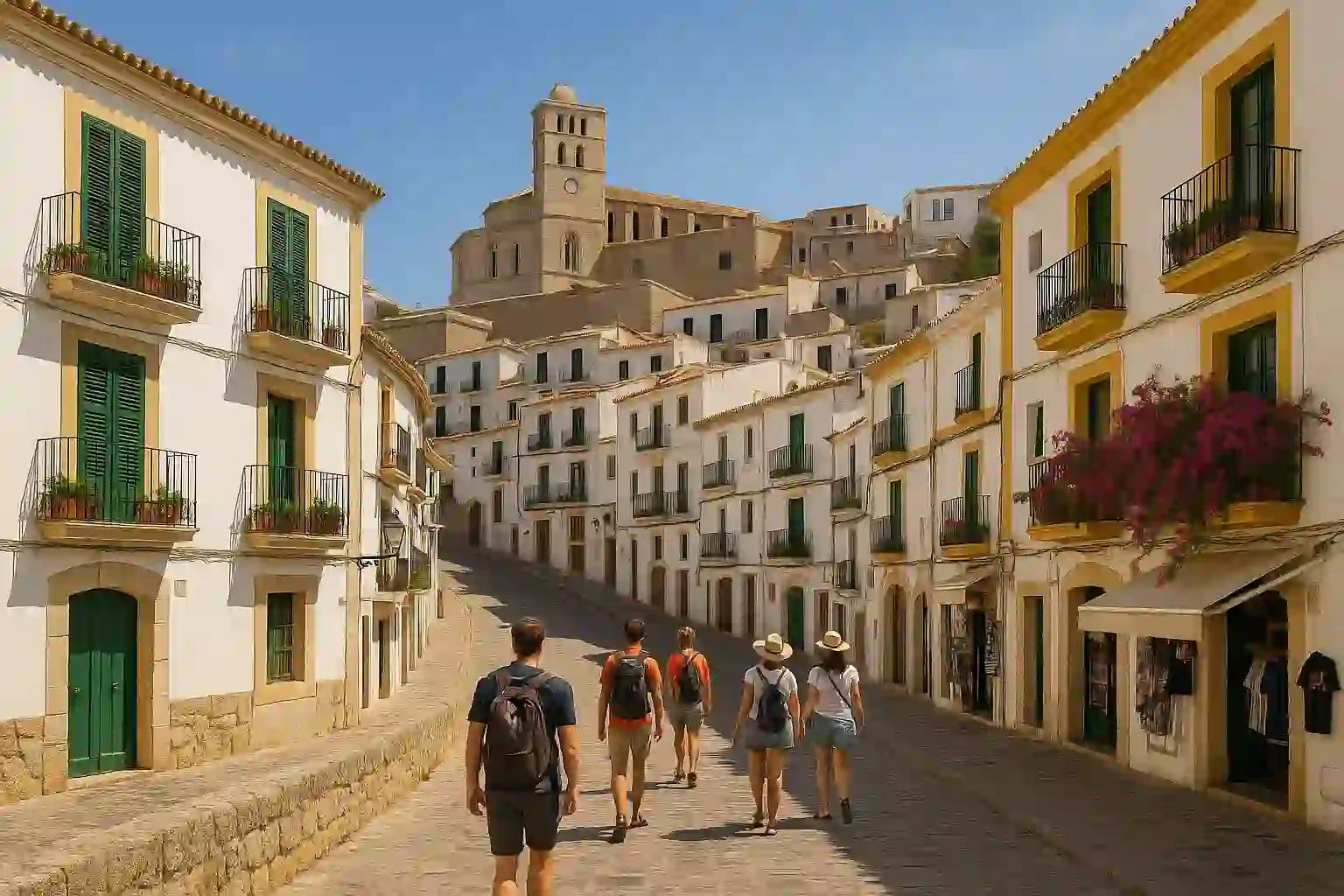Ibiza Old Town Walking Tour – Layers of History Beneath the Sun

The walk begins at the Portal de ses Taules, the grand gateway that opens like a stone mouth into the fortified world of Ibiza’s past. Guards once watched from these bastions; today, swallows and tourists share the sky. The scent of jasmine mixes with sea breeze and espresso from the cafés below.
Each step upward feels like moving through centuries. Under my feet, cobblestones polished by time; above me, balconies with wrought-iron railings, draped in bougainvillea. An elderly woman greets me with a warm “Buenos días” — the kind of small exchange that reminds me that Spanish, like the town itself, is best learned by walking, listening, and living.
Echoes of Civilizations
The walls of Dalt Vila hold more than lime and limestone — they contain the layers of Ibiza’s soul. The Phoenicians founded the island for trade and salt; the Romans built temples; the Moors brought irrigation and the Arabic rhythm still echoing in local words. When Catalan conquerors arrived, they left language, faith, and a sense of identity that still breathes in the island’s dual tongue: Ibicenco (a Catalan dialect) and Castellano (Spanish).
Streets that Whisper Stories
I pass through quiet alleys where cats stretch on sun-warmed steps, and a lone guitar drifts from an open window. The rhythm reminds me of how close Spain’s heart still beats to the sea — even here, on an island often mistaken for mere nightlife. In truth, Ibiza’s daytime soul lives in its stones, its elders, its traditions.
At the small museum of Puget, I find paintings that capture the same light I’ve been following all morning. The walls seem to breathe — ochre, white, and cobalt blue. Outside, the scent of rosemary from nearby gardens reminds me of Spanish kitchens, where history and hospitality are always entwined.
From Fortress to Faith
The climb leads to the Catedral de Santa María, perched where an ancient mosque once stood. Inside, the cool air carries the sound of silence — a contrast to the chatter below. Through the open doors, I glimpse the Mediterranean again, endless and shimmering, as if the island itself were floating on light.
From this height, I see the contrast that defines Ibiza: modern boats, medieval walls, and a language that shifts easily between centuries. Locals speak Catalan to one another, Spanish to travelers, and smiles in every language. It’s an island that listens before it speaks — and that, perhaps, is its greatest lesson.
Learning through Place
Travel here teaches more than geography. For anyone studying Spanish, a few days in Ibiza become a living classroom: menus, conversations, music, and street signs all form a mosaic of meaning. The best language lessons don’t happen behind desks but between footsteps, café tables, and questions asked with curiosity.
If you’d like to turn that curiosity into confidence, you can join an intensive Spanish course — then return to these streets and listen differently. You’ll hear the rhythm of phrases, the melody of accents, and realize that learning Spanish is also a way of belonging.
Evening Light over Dalt Vila
As sunset nears, I sit on the ramparts, watching the city below glow in gold. The sea turns violet; voices rise from the harbor; a guitar begins again, softer now. A young couple speaks in Spanish and laughs; a waiter hums while setting tables. The world feels intimate, the kind of smallness that makes travel matter.
